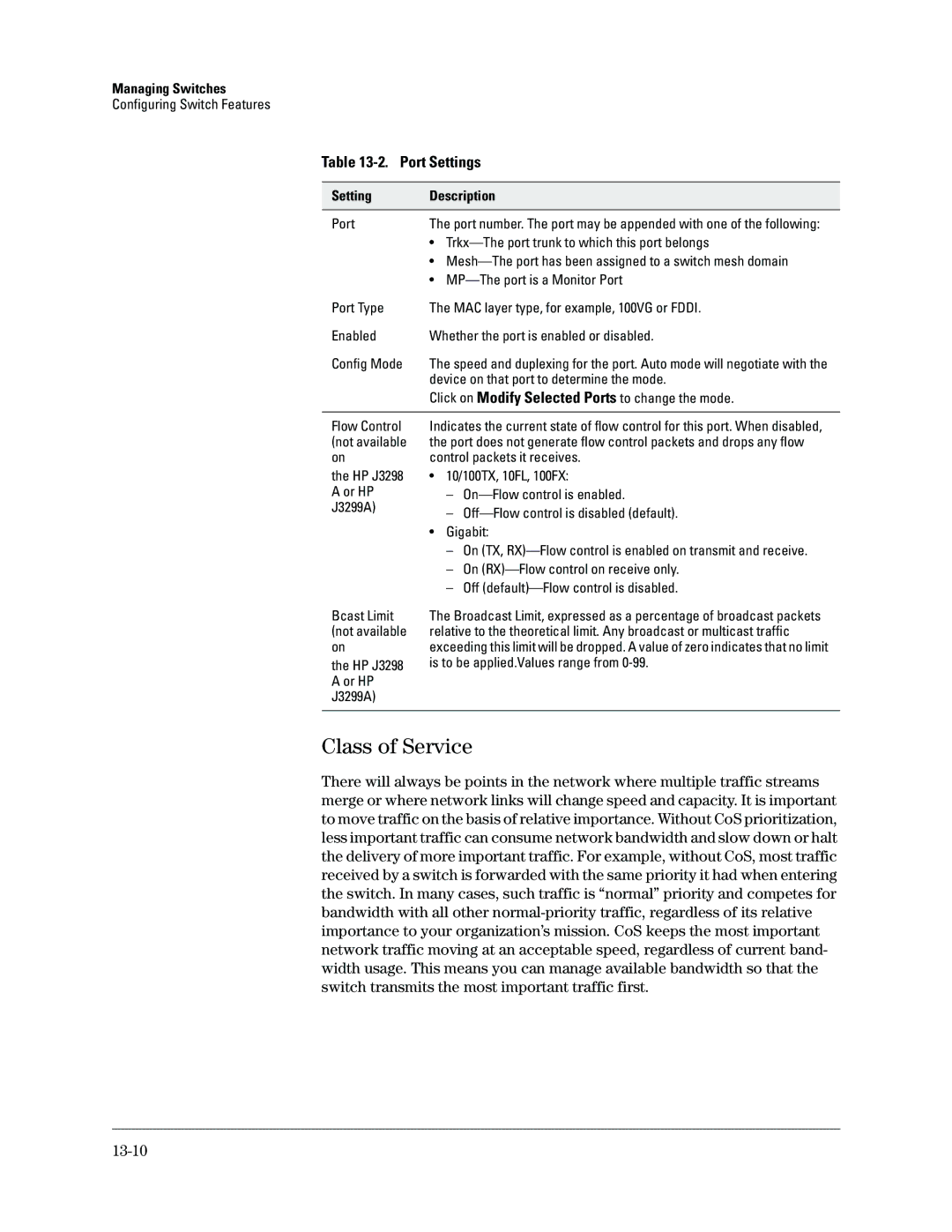Managing Switches
Configuring Switch Features
Table 13-2. Port Settings
Setting | Description | |
|
| |
Port | The port number. The port may be appended with one of the following: | |
| • | |
| • | |
| • | |
Port Type | The MAC layer type, for example, 100VG or FDDI. | |
Enabled | Whether the port is enabled or disabled. | |
Config Mode | The speed and duplexing for the port. Auto mode will negotiate with the | |
| device on that port to determine the mode. | |
| Click on Modify Selected Ports to change the mode. | |
|
| |
Flow Control | Indicates the current state of flow control for this port. When disabled, | |
(not available | the port does not generate flow control packets and drops any flow | |
on | control packets it receives. | |
the HP J3298 | • | 10/100TX, 10FL, 100FX: |
A or HP |
| – |
J3299A) |
| – |
|
| |
| • | Gigabit: |
|
| – On (TX, |
|
| – On |
|
| – Off |
Bcast Limit | The Broadcast Limit, expressed as a percentage of broadcast packets | |
(not available | relative to the theoretical limit. Any broadcast or multicast traffic | |
on | exceeding this limit will be dropped. A value of zero indicates that no limit | |
the HP J3298 | is to be applied.Values range from | |
A or HP |
|
|
J3299A) |
|
|
|
|
|
Class of Service
There will always be points in the network where multiple traffic streams merge or where network links will change speed and capacity. It is important to move traffic on the basis of relative importance. Without CoS prioritization, less important traffic can consume network bandwidth and slow down or halt the delivery of more important traffic. For example, without CoS, most traffic received by a switch is forwarded with the same priority it had when entering the switch. In many cases, such traffic is “normal” priority and competes for bandwidth with all other
